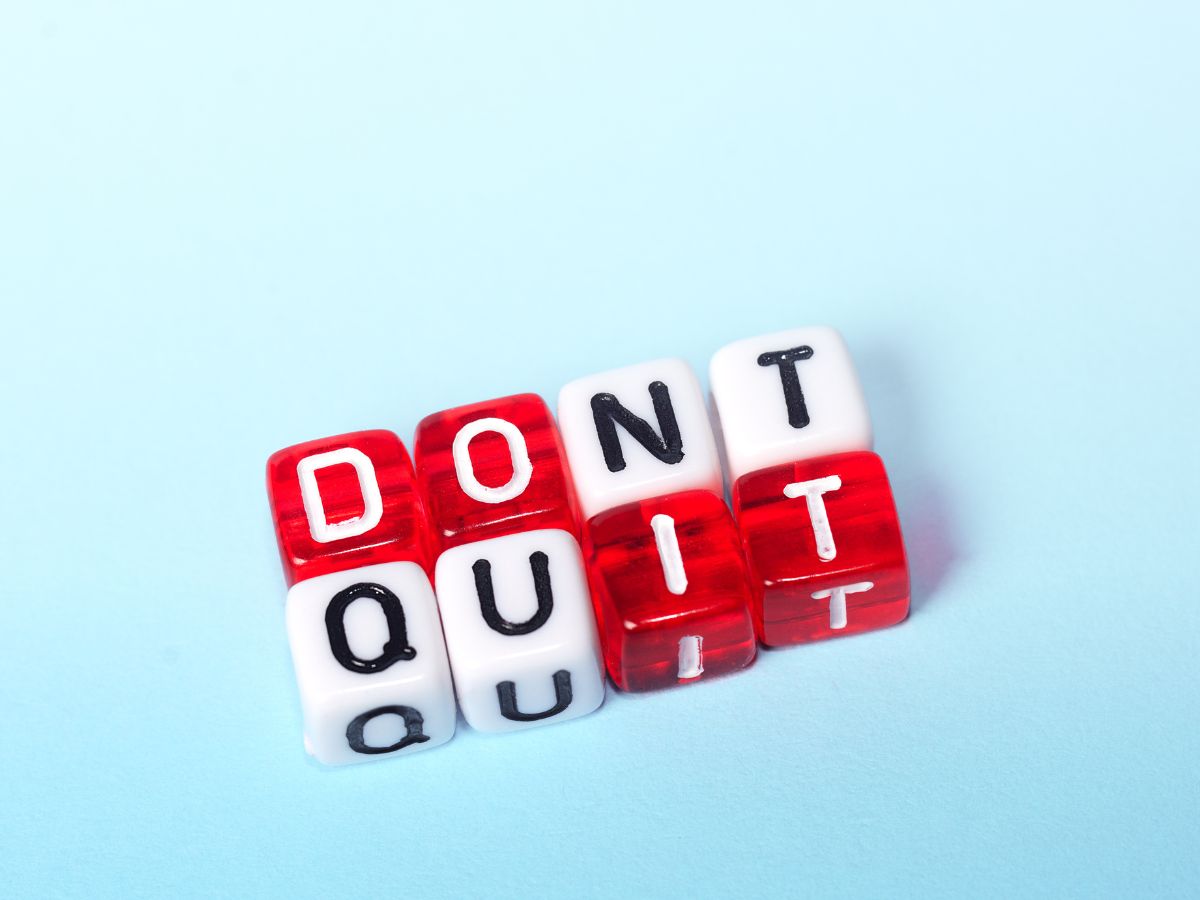Why did I become a solopreneur and start a career in copywriting?
Because life is hard. But it’s twice as hard when you work a job that you hate.
Think about it.
There are 24 hours in a day.
And you’re at work for a third of it.
A third.
Or 90,000 hours in your lifetime.
Let that sink in.
If you’re stuck heading to work every day with a knot in your stomach and a heavy heart, imagine what you’re doing to your mental health.
Your soul.
You’re destroying it.
You know how I know?
Because that’s exactly what happened to me. And my health suffered as a result.
And you know what else? All I ever wanted was to work for a company that respected and valued my work ethic.
One that celebrated my wins.
So I did.
When I became my own boss.

Today, I’m going to tell you my story about solopreneurship and copywriting career.
The good.
The bad.
The ugly.
Just quietly, I’ve made a ton of mistakes in these past five years of starting my own business. And I’ve taken away some hard-earned lessons.
Good news: I’ll share them with you. So you don’t make the mistakes I did.
Because these are the things I have learned about copywriting and building a business, I wish I’d have known five years ago.
Buckle up. Because we’re going for a ride.
You can expect highs, lows, and winding roads.
But it will be worth it.
I promise.
Prologue
Growing up in Australia, I always had a book in my hand.
At the age of eight, while other children dreamt of being astronauts, hairdressers, race car drivers, or the next Michael Jordan or Britney Spears, I was the weird kid.
I had high hopes of becoming a journalist.
Yes, a journalist.
I was always getting in trouble for leaving half-finished books around the house (there were at least three going at once).

Homework? No time. I had books to read.
And when the latest Harry Potter instalment was released? I’d wait patiently in line until that baby was safe in my arms.
And then?
I’d mysteriously come down with something, just so I could skip school.
To read.
I’m sure my parents were aware of my escapades. But their problems could have been a lot worse than their child wanting to read.
So, it was only fitting that I’d get my first job as a shelver.
What’s that, I hear you asking?
When you return books to the library, they don’t magically re-appear on the shelves.
Someone has to do that.
And that person was me.
Thousands of books passed through my hands.
Many of them came home with me.

It was a curse and a blessing at the same time. I had nowhere to fit them, or the time to read them all, but oh, how our love affair deepened.
My university days rolled by while I still worked at the library. International Studies, not the journalism degree I’d once hoped for. You see, the score was far too high to get in, and the work prospects were minimal.
I had no idea what a copywriter was at this point.
So, I finished my degree, packed my bags and made a move.
Over the pond and to Croatia.
Because, why not?
Lesson learned: If you love something, stick with it.
Because chances are you won’t look at it as a job.
So, follow your fire.
Nurture that passion, and the universe will reward you for it.
Chapter 1: The Hellish Work Experience
To tell you the truth, I’d been pretty spoiled with work in Australia.
From handing over goods in the lay-by department of a huge department store (I felt like Santa) to eating endlessly at Subway, and the library, I thought most jobs would be like this.
Boy, was I wrong.
Sending out what felt like hundreds of applications, things quickly looked bleak for me in Croatia.
There were bills to pay and mouths to feed. Well, mouth, but your girl’s gotta eat.
And then I finally struck what I though was gold. I’d landed a job as a sales assistant in a well-known retail store.

I was surrounded by my other loves.
Clothes and fashion.
Very quickly, I found myself living a less glamorous version of “The Devil Wears Prada”.
With a fraction of the pay.
Unpaid overtime.
And more manipulation and degradation from management.
Miranda Priestly was a walk in the park in comparison.
Contracts were renewed monthly and then after three months for what seemed like forever.
But even whether contracts would be extended was constantly up in the air.
Because the uncertainty was supposed to make you try harder.
Make you prove yourself worthy.
Welcome to Dante’s ninth circle of hell.
The worst part was that the more I tried, the less I was appreciated.
To be fair, I was terrible at first.
The language barrier I thought I had really knocked my confidence.
Instead of trying to make sales, you’d normally find me crouched down, tying shoelaces so customers wouldn’t spot me.
But I picked things up from my glorious colleagues along the way, and after a while, I was making sales left, right and centre.
Shockingly, management started to notice.
And at the same time, store managers started to leave.
That part wasn't a surprise to anyone.
Suddenly, I was presented with the option of a leadership role.

I was beside myself.
I was elated.
At long last, someone had noticed and acknowledged my skills. I accepted gratefully.
Stockholm syndrome at its finest.
Months passed, and my responsibilities increased.
As did my overtime.
As did my anxiety.
I was blamed for things beyond my control. Phrases like “boycotting sales” were thrown around so casually.
I was distraught.
Only because I get so emotionally invested in whatever I do.
I took blow after psychological blow for a while until my health took a nasty downturn.
At that stage, I’d also signed up for a master’s degree in — you guessed it — journalism and PR.
Working full time in hell and studying in a language I wasn’t comfortable in wasn’t ideal.
All the tears, anxiety attacks I’d experienced, and my health issues came to a plateau.
But it took years to realise, and a supportive partner, uttered the magic word to me one night: quit.
Just quit.
But should I?
Could I?
Yes. It was time.
I had to cut ties.
And so, I did.
When I finally bid farewell after years of hard work (and that unpaid overtime), I foolishly expected some sort of emotional goodbye.
Or something?
Just a thank you would have been nice.
Instead, I got, “I hope you remain a loyal customer of our brand.”
Sorry, what?
Needless to say, it left me with a bitter taste in my mouth.
Was it cold? Yes.
Was it ruthless? Also yes.
But it was exactly what I needed.
Because it made walking away that much easier.

Lesson learned: if you find yourself dreading going to work, falling ill constantly, being overworked and underpaid, make it stop.
Because only you can.
Look, we’ve all done it.
Stuck around way past our due date.
But don’t kid yourself into thinking one day you’ll get appreciated for your hard work.
It’s not likely to happen. Especially if you’re being held accountable for things.
You.
Cannot.
Control.
Because back then, I didn’t know about copywriting or the slew of other online opportunities out there. I had what I thought was job security and pretty good compensation.
But no money in the world can get your health back once it’s gone.
The simple truth is, you have the world at your disposal.
It’s right there at your fingertips.
Don’t be afraid to use It.
It’s called a keyboard.
Trust me.
It’s time.
Chapter 2: Embracing Solopreneurship
I dipped my toe into a completely different sector after my fall from grace in sales.
But then something really interesting happened. I guess I finally built up the courage to admit to myself what did and, more importantly, what didn’t work for me.
And the hours were ridiculous.
So I bowed out.
I started digging online, where I found out about copywriting.
Reading and writing had always been a passion of mine, but unless you were Stephen King or J.K. Rowling, how would that even work?

Where would I find copywriting jobs with no experience? Or a marketing degree?
Much to my surprise, there were people and brands looking for copywriting services online.
To write articles and blog posts in a number of industries.
Interesting.
I could write an article. How much different were they from essays I’ve written at uni?
Quite, as I’d soon find out.
The worst part is that I ended up on platforms such as Upwork and others like it, bidding for articles at $10 for 1,000 words.
But I didn’t care.
I was writing about things like fashion and real estate.
So, I quickly made things official and became a solopreneur.
The topics were easy to cover and were a joy to write about. Not to mention a complete breeze.
My clients loved me, and they loved my work.
But I was typing away at my keyboard for a measly $35. Daily.
At this stage, I was tired.
My eyes were red.
I was underpaid.
And exhausted.

How long could this go on for?
Then I fell upon a job opportunity (on People Per Hour, to be fair) looking for a lifestyle content writer, paying about five times how much I was making.
Was that even possible?
My application letter did the job, and I got a paid test article to write.
Something about pets getting up to no good.
You know, like chewing on their human’s favourite lipstick or shredding the toilet paper around the house.
I had fun with it, and nailed it.
I got the job.
And it got me through the door to a UK agency that had me writing about a bunch of things I initially knew little to nothing about.
That’s the beauty of the internet.
All the information you need is online.
More importantly they were happy with the work and said “please” and “thank you” when I’d hand in the pieces.
I’d completely forgotten that was a thing.
My happiness was palpable.
I had everything I needed with this agency and getting paid more than ever before.
So, I didn’t look for other clients.
I didn’t need to.
It was heaven.
It was bliss.
And then…
It was a pandemic?
Enter COVID-19.
Lesson learned: Don't get too comfortable even when you get your dream copywriting job.
Or complacent.
Things that are out of your control can happen, just as they did with this agency.
Corona hit, and the agency (understandably) kept the jobs in-house. The freelancers were suddenly cut off and, in my case, out of work.
Always have a backup plan and look for other clients.
Rather have more clients paying you in small instalments than just one forking out barrels of cash.
It’s a recipe for disaster.
Chapter 3: The Quest for Gigs
So, where was I?
Oh, that’s right — COVID.
Can your girl catch a break? Apparently not.
Basically, my world came crashing down.
All these years of hard work and it disappeared in what seemed like a minute.
How could I have been so stupid?
But let me tell you, once you’ve had a taste of both worlds, it’s hard to give up the sweeter one.
I’ve done it before, so who’s to say I can’t do it again, right?
Maybe it’s the Scorpio in me, slightly relishing at the thought of complete and utter destruction — and the rebirth that follows.
So there I was, in the digital trenches, digging again.

But not on platforms like Upwork.
No ma’am.
This time, I was smart enough to contact brands directly.
I had a master's degree in journalism that I shamelessly flaunted and a few years of experience (read copywriting samples) under my belt.
The problem was the pandemic meant a lot of companies were cutting down on marketing.
This included copywriters.
But I’d read somewhere that smart businesses were taking an opportunity to invest in marketing during the economic downturn.
And that it would pay off for them. It made sense.
So I kept going.
Cold pitch after cold pitch. I must have sent out hundreds of them. And then, I got a bite.
From one potential client.
And then another.
And another.
Lesson learned: If you learn anything from this, it’s not to throw all your eggs in one basket.
Because it will eventually bite you in the butt.
Another is never to quit.

If other people can do it, so can you.
Just keep going. If it’s not working, pivot, but keep at it.
Eventually, you’ll get where you need to be.
It might sound silly, but it’s not.
Trust in the process.
But above all, trust in yourself.
Chapter 4: Battling Imposter Syndrome
Standing on a stage surrounded by a sea of expectant faces, the air thickens, heavy with self-doubt.

The world constricts around me.
My heart pounds like a relentless drum; each beat echoing in my chest as if trying to escape.
Every breath feels shallow like I might suffocate under the weight of others’ expectations.
My palms become clammy, and thoughts race in a dizzying whirlwind.
The spotlight intensifies, revealing my perceived flaws, magnifying my insecurities, and blurring my sense of self.
The voices of doubt and self-critique crescendo in my mind, drowning out any reason or confidence.
I am convinced that at any moment, someone will expose me as a fraud, and my accomplishments will crumble like a house of cards.
Think I’m exaggerating? Unfortunately, not.
Am I incompetent?
No.
Am I inadequate?
Again, no.
But in those harrowing moments, it’s as if the world exists solely to scrutinise my every move and highlight my inadequacies, leaving me trapped in a suffocating cycle of self-doubt and anxiety.
While not always this extreme, a slight degree of imposter syndrome tends to hit me with each new client.
For writers, in particular, creativity and subjectivity play significant roles, so questioning the quality of your work can be particularly challenging.
But imposter syndrome happens to a lot of people from all walks of life and various professions.
And that makes me feel better. How about you?
I love this quote from famous author Neil Gaiman that attests to that fact.
“Some years ago, I was lucky enough invited to a gathering of great and good people: artists and scientists, writers and discoverers of things. And I felt that at any moment, they would realise that I didn’t qualify to be there, among these people who had really done things.
On my second or third night there, I was standing at the back of the hall, while a musical entertainment happened, and I started talking to a very nice, polite, elderly gentleman about several things, including our shared first name. And then he pointed to the hall of people and said words to the effect of, “I just look at all these people, and I think, what the heck am I doing here? They’ve made amazing things. I just went where I was sent.”
And I said, “Yes. But you were the first man on the moon. I think that counts for something.”
And I felt a bit better. Because if Neil Armstrong felt like an imposter, maybe everyone did. Maybe there weren’t any grown-ups, only people who had worked hard and also got lucky and were slightly out of their depth, all of us doing the best job we could, which is all we can really hope for.”

Astonishing, isn’t it?
My cure for imposter syndrome is a three-step process:
Setting realistic goals
Staying organised
Just getting on with it
Number three is a huge one.
Because your brain tends to make things bigger than what they really are.
Cut the tasks down into parts.
Take it a step at a time.
You can do it.
You can.
Lesson learned: You hear about saturation and competition in the corporate world. Who is your biggest competitor, what are they doing, and all the rest?
You know who your biggest competition is?
You are.
Because nothing can be more self-deprecating than your own mind.
It haunts the likes of Neil Gaiman.
And Neil Armstrong.
But you know what else?
Confidence is built over time, and everyone feels uncertain at the start.

So, get organised and just start.
It’s the best cure, for me, at least.
Chapter 5: Navigating Criticism and Achieving Balance
Ah, the familiar sting of criticism — a constant companion in a copywriter’s journey.
It’s those dreaded words every copywriter hears in their worst nightmares.
And sometimes over Zoom.
Or over email.
And they go like this:
“I don’t think anyone reads the copy underneath the images, so just write whatever.”
Or perhaps this gem:
“Make it pop more, but also be extremely formal, witty, and edgy, all while using a serious tone.”
And then there’s the ultimate gut punch:
“I approved it, but now I’ve changed my mind. Rewrite the entire thing.”
It’s a harsh reality. There will always be someone who doesn’t like your work.
Or think they can do better.
But here’s the thing. Criticism is not a foe to defeat; it’s a companion to embrace. It’s the crucible in which your craft sharpens and your words transform from good to great.
Each critique, each challenge, is an opportunity. An opportunity to refine your skills, uncover the hidden gems within your work, and emerge stronger.
Criticism is not your enemy.
It’s your sparring partner, your muse, and your path to greatness.
With every cut of their words, you craft a sharper, more exquisite blade.
Lesson Learned: The truth?
You need to choose your battles. But more so, choose your clients.
Carefully.
Because sometimes the job, just because it might be a paying one, isn’t worth it. Those clients aren’t worth your time, your sanity, or your creative spirit.
And you can usually smell them a mile away.
Trust me when I tell you to trust your gut.
Hold out for those who appreciate your craft, who respect your talent, and who understand the art of collaboration. They’re out there, waiting for your brilliance.
So, keep your chin up, your keyboard clacking, and your words flowing.
Choose your battles wisely, and remember, there’s a world of appreciative clients out there – ones who will elevate your work and acknowledge your worth.

Your talent is meant for greatness, and your time is valuable.
Choose wisely.
Epilogue: Vision for the Future
I’m not going to sit here and brag about how well I’ve done or how my non-existent million-dollar agency has converted a gazillion clients.
I’ll leave that for the ten-year milestone. Kidding.
But seriously, if this helps any of you quit your dead-end job, dip your toe into copywriting or solopreneurship, or even navigate the treacherous waters of criticism and emerge as mightier copywriters, my work here is done.
But now it’s time to turn your gaze toward the horizon.
What are your aspirations in the vast copywriting world? What lofty goals do you aim to conquer? This is your chance to shout them from the digital rooftops.
Perhaps you dream of becoming the unrivalled expert in your niche, the author of that game-changing bestseller, or the go-to wordsmith for the most coveted clients.
Whatever your goals may be, let them be your guiding stars, your North on this writerly journey.
But here’s the twist – it’s not just about your aspirations; it’s about inspiring the copywriters around you.
Share your wisdom with the aspiring scribes who look up to you.
Let them in on the secrets you’ve gathered along the way.
Encourage them to read relentlessly, write without restraint, and embrace the boundless learning journey.
Be the guiding light you wish you had when you started.
And lastly, remember this: “If I can do it, so can you.”
This journey, filled with its highs and lows, is living proof that dreams can become a reality in the world of copywriting.

So, my fellow copywriters, share your dreams, inspire those who follow, and keep those words flowing.
The future is brimming with potential, and you’re leading the way.
Onward and upward!
